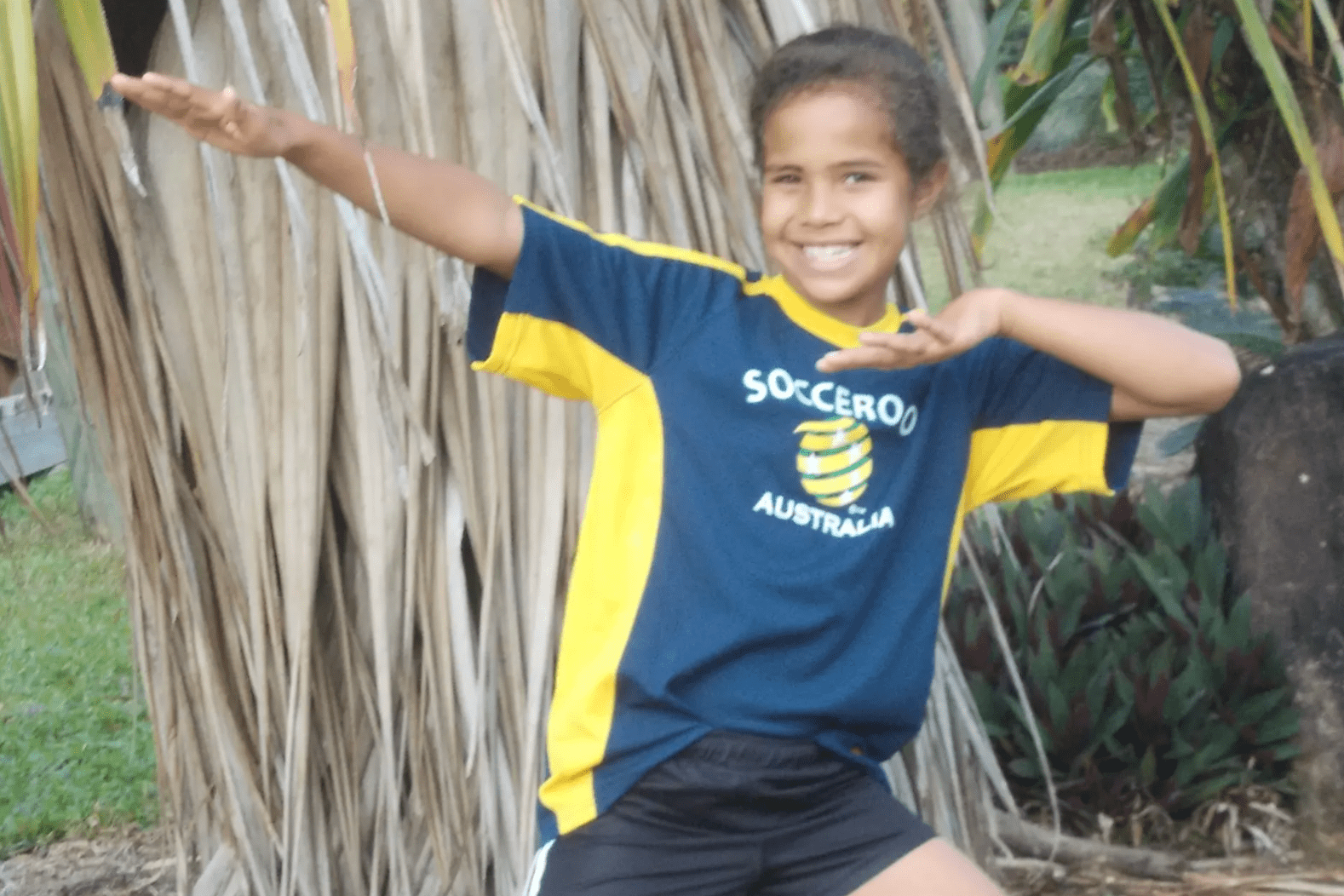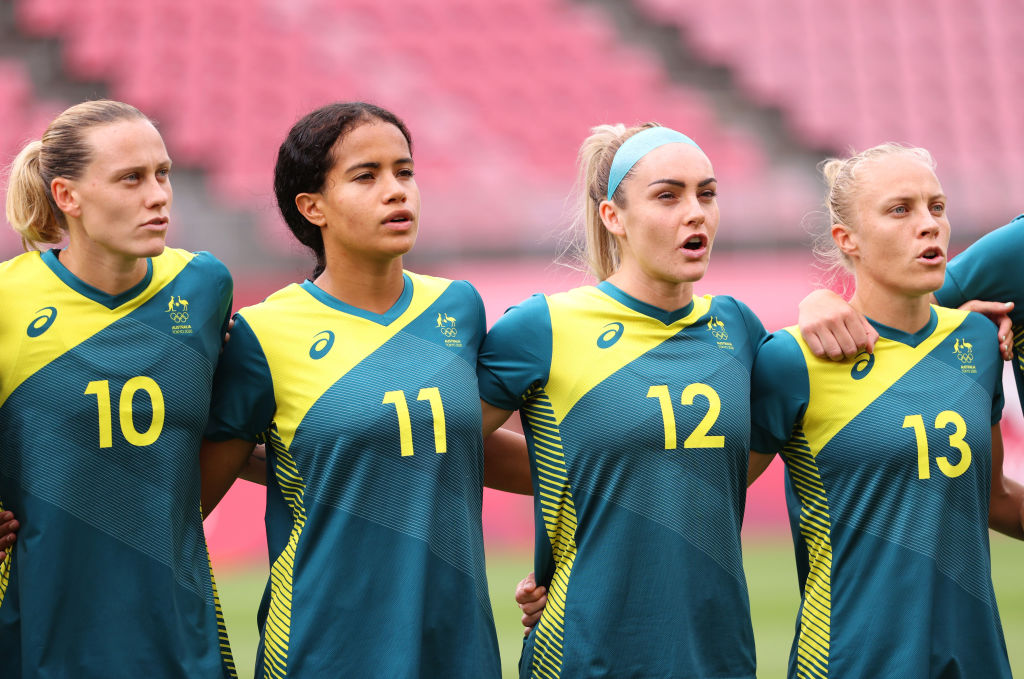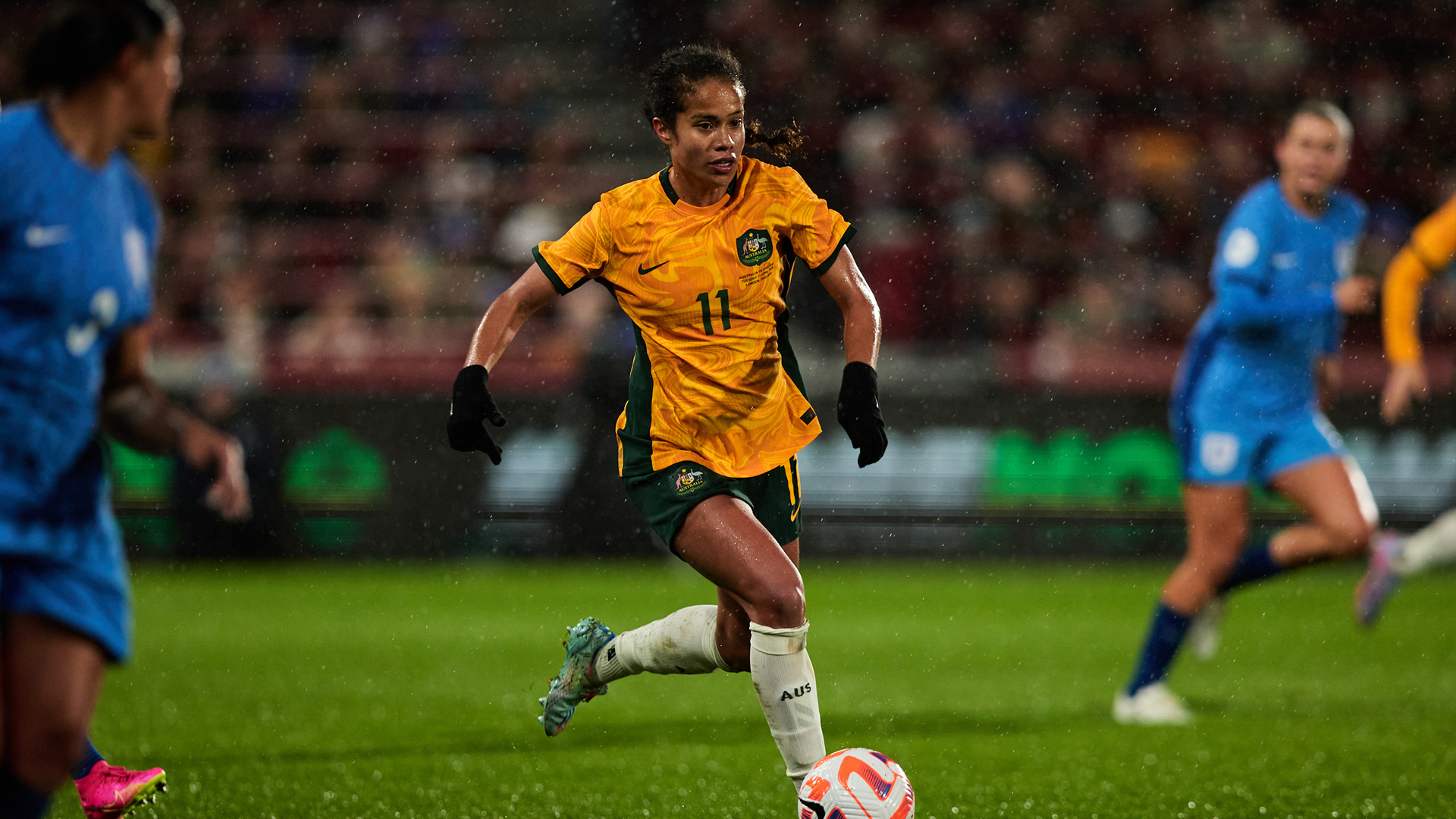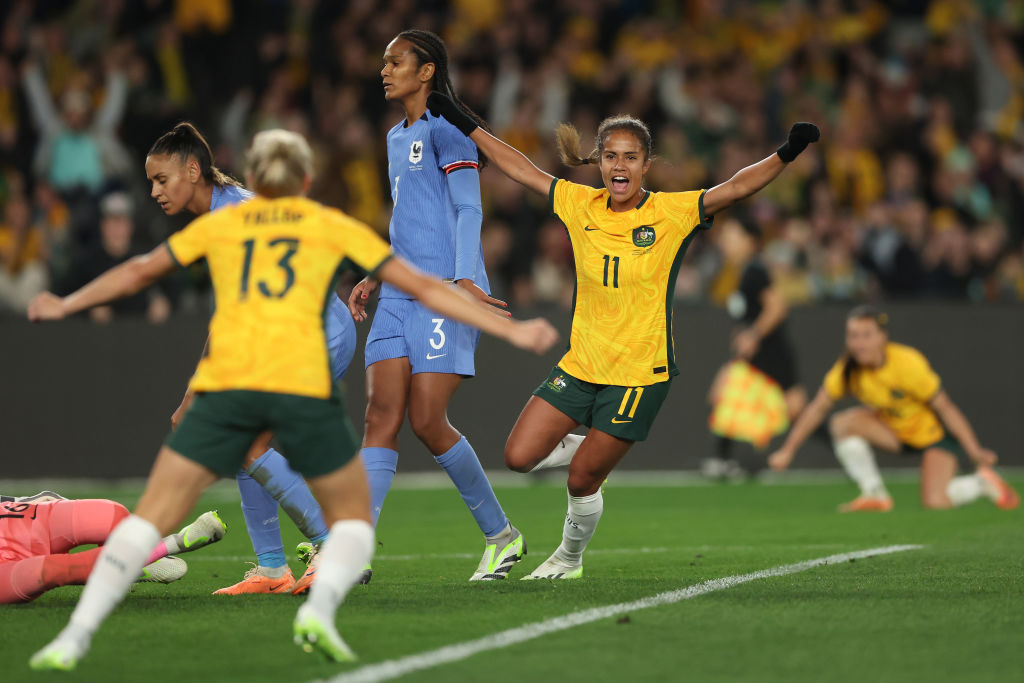23 - Mary Fowler: "I'm most proud of how I've changed as person."
Making her international debut at just 15 years old, Mary Fowler spent the majority of her teenage years in the public eye. Punters calling her ‘the next best thing,’ a ‘teenage prodigy’, ‘the next Sam Kerr,’ she felt the pressure of expectation from a young age.

The daughter of an Irish father and Papua New Guinean mother, Fowler is one of five children, all of whom have had football play a significant role in their lives.
Born in Cairns, Fowler would kick around with her siblings on the sands of Trinity Beach after school. With no televisions in the house, the “Fowler Five” were always encouraged to do something meaningful with their lives.
Mary channelled her energy into football and at just 10 years old, was already playing for the Queensland state U12s team and was versing boys two years her senior. The family then moved to the Netherlands, where they signed with BVV Barendrecht.

When she was 14, the Fowlers moved back to Australia where Mary would later play in the NSW Women’s National Premier League before signing with Adelaide United in the W-League. Then, at the tender age of 15, she would make her international debut for the Matildas against Brazil at the 2018 Tournament of Nations.
Fowler impressed so much that she would be selected for the FIFA Women’s World Cup 2019 squad and then again for the Tokyo 2020 Olympics where she scored a decisive goal against Great Britain in the quarterfinals.
“Going to the Olympics was the only dream I had as a kid and it wasn't even like, I wanted to go to the Olympics for football. I just wanted to go to the Olympics,” she said.
“[When I started playing football] I said to myself, I'm not going to finish until I make it to an Olympics. But then I was picked in that squad and I was like, Oh, what do I do with myself now? That was my one sporting dream, to be an Olympian.
We competed and had a decent tournament together, I scored a goal and I was just thinking about the little kid who’d had that dream. I got to be able to say I'd ticked that off.”

Fowler Fever had begun to swell, with the then 18-year-old becoming one of the most exciting and talked about players in the national team. She spurred on media by saying she wanted to be, “the best in the world.”
She didn’t realise at the time, how much pressure that statement was going to put on her.
“When you're a little kid who has done nothing yet, but you’re told you're the next big thing and you're being compared to all these great players, you think ahead,” Fowler explained.
“I do remember saying to the media that I wanted to be the best in the world, but I think that made me feel like I couldn't do anything outside of football. I couldn’t have fun, because then I wouldn’t be staying on the path of becoming the greatest.”
Selected for her second World Cup at just 20 years old, Fowler has already played an indispensable part in the Matildas FIFA Women’s World Cup 2023 campaign.
“Being selected was a massive honour,” she said.
“The last World Cup, I didn't get any minutes, but it was still an amazing experience. Just being there being with the girls gave me so much motivation to want to be there for the next one and play a bigger role.
“Getting the news that I’d made the squad was pretty big and the added fact that it was at home, in front of the whole nation, having family and friends there. It's just stuff that you don't dream of when you start your career,” she continued.
Wise beyond her years, Fowler reflected on her personal growth since making her debut as a teenager.

“A lot has happened in the last four years. I was actually writing in my journal the other day about what I've done so far in my career and the things I'm most proud of are how I've changed as a person. A lot of that has happened through football experiences,” she shared.
“At the last World Cup, I was young, and I was very confident. It's a very thin line between confidence and arrogance and I was a striker back then, all the time, scoring goals.
“It's been a nice journey and the growth I've had off the field is very much related to how I've changed on the field as well,” Fowler continued.
“I feel a lot more comfortable out there because I'm more comfortable with myself. When I had it in my mind that I had to be the best in the world, it just meant that every single one of my teammates, was my competitor.
“Instead of being like, I could pass you the ball and you’d 100% l score a goal, it was like, no, I'm going to shoot from here because I need the stat. Whereas now, it’s so much nicer to just want to win with the team,” she said.
“It’s a team sport and even if I don't get a goal, I'm so happy for my teammates to score. They're on their journey and that one was meant for them.”
Before inking a massive four-year deal with Manchester City in the English WSL, Fowler moved to France to play for Montpellier in the Division 1 Féminine in January 2020. This culture change prompted a shift in mindset both on and off the pitch.
“I remember when I went to France, there were a couple of girls in the team around my age. They made a list of places and restaurants they wanted to go to. I told them I could only go out three times a month,” she said.
“At the time, I just felt like football needed to be everything. Whereas now, I look at life as a whole because football will end one day, and you still have this life that needs to be lived.
“When I look back, I don't want to regret that I've not made any nice memories with my teammates, or that I don't have any friends.”
Fowler also started to become more comfortable with embracing her identity outside of football.
“I've become my own biggest supporter and the way I’ve done that is by making sure that I celebrate my small wins,” she said.
“It’s not even football-related, it’s off the field, like wearing my hair out for the first time. I was so self-conscious about doing that and in France I did it. It was a small win because I didn’t want to do that for so long.

“I definitely struggled a bit with the image of who 'Mary Fowler' is and who I think I am. Wondering what people expect me to be and if I have to be that person. But I don't really tune into that anymore. Now it's more about, what do I want?” Fowler shared.
“I write a lot and that helps me understand my feelings and what I want for the future. I write about the kind of woman I would like Mary to be and then in situations will ask myself, what would ‘that’ Mary do in this situation? It’s a constant journey of growth.”
